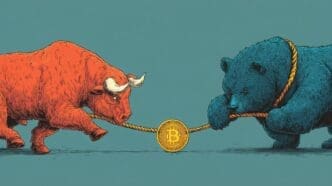Executive Summary
The Story So Far
Why This Matters
Who Thinks What?
FinTech is revolutionizing the publishing industry, moving beyond traditional book sales to create dynamic new models for content creation, distribution, and consumption. This innovative financial technology stack, encompassing everything from micro-payments and subscription services to blockchain-powered ownership and creator-centric funding, is fundamentally reshaping how authors earn, how readers pay, and how the entire ecosystem values literary works. It democratizes access, empowers independent creators, and offers consumers unprecedented flexibility in how they engage with written content, marking a pivotal shift in the economics of reading.
The FinTech Stack: A New Financial Backbone for Publishing
At its core, the FinTech stack in publishing refers to the suite of financial technologies and services that enable new economic models for written content. This goes far beyond simple e-commerce payment gateways; it involves sophisticated systems for recurring revenue, fractional ownership, direct patronage, and transparent royalty distribution. These technologies are dismantling the traditional gatekeepers of publishing and fostering a more direct relationship between creators and their audience.
This evolving stack includes robust payment processing systems, flexible subscription management platforms, and tools for implementing micro-transactions. It also leverages crowdfunding mechanisms, sophisticated data analytics for monetization strategies, and increasingly, blockchain technology for digital asset ownership and transparent royalty tracking. Together, these components create a powerful infrastructure that redefines how value flows within the literary world.
Direct-to-Reader Monetization Models
One of the most significant shifts is the proliferation of direct-to-reader monetization. Authors and content creators can now bypass traditional publishers to connect directly with their audience, offering content through various payment structures. This model empowers creators to retain a larger share of their earnings and maintain greater creative control over their work.
Subscription services have become a cornerstone of this direct model, allowing readers to pay a recurring fee for access to exclusive content, serialized novels, or a curated collection of works. Platforms like Substack exemplify this, enabling writers to build paid newsletter subscriptions, while services like Kindle Unlimited offer a broad library for a monthly fee. This predictable revenue stream is transformative for creators.
Micro-transactions also play a crucial role, allowing readers to purchase individual chapters, articles, or even specific narrative choices within interactive fiction. This granular approach to content consumption caters to modern reading habits, where engagement can be short-form and highly personalized. It provides a low barrier to entry for readers and an additional revenue stream for authors.
The Rise of the Creator Economy in Literature
The broader creator economy has found a strong foothold in the literary world, largely powered by FinTech innovations. Platforms like Patreon enable readers to become patrons, supporting their favorite authors through recurring donations, often in exchange for exclusive content, early access, or behind-the-scenes insights. This fosters a deeper community and more sustainable income for writers.
These platforms provide the financial infrastructure for creators to manage memberships, process payments, and engage directly with their most loyal supporters. They often integrate tools for content delivery and communication, making it easier for authors to run their own independent publishing operations. This model champions artistic independence and direct audience engagement.
Blockchain and Digital Ownership: Redefining “Book”
Blockchain technology is beginning to introduce revolutionary concepts like verifiable digital ownership and transparent royalty distribution to the publishing sector. Non-Fungible Tokens (NFTs) can represent unique digital editions of books, allowing for true scarcity and a secondary market for digital assets. This challenges the long-held notion that digital content cannot be truly owned or resold.
Through NFTs, authors can embed smart contracts that automatically pay them a royalty every time a digital copy is resold on a secondary market. This provides a perpetual income stream that was previously impossible in the digital realm. It also opens doors for fractional ownership of literary works, allowing multiple individuals to collectively own a piece of a valuable digital asset.
Decentralized autonomous organizations (DAOs) are also emerging, where communities of readers and writers can collectively fund, publish, and even govern literary projects. This model democratizes the publishing process and allows for community-driven curation and ownership. It represents a radical departure from traditional publishing hierarchies.
Crowdfunding Literary Endeavors
Crowdfunding platforms like Kickstarter and Indiegogo have long served as vital FinTech tools for authors seeking to fund their book projects directly. These platforms allow writers to solicit financial pledges from their audience in exchange for early copies, exclusive merchandise, or special acknowledgments. It’s a powerful way to gauge interest and secure capital without traditional advances.
This model not only provides the necessary funds for writing, editing, and marketing but also builds a community of invested readers even before publication. It acts as both a pre-order system and a marketing tool, proving the viability of a project to potential publishers or agents, should the author choose that route later.
Data-Driven Insights and Personalization
FinTech’s influence extends to the analytical realm, where sophisticated data science helps optimize pricing, content strategy, and reader engagement. By tracking reading habits, purchase patterns, and engagement metrics, authors and platforms can tailor offerings to individual preferences, leading to more effective monetization. This personalized approach enhances the reader experience significantly.
Understanding which genres perform best, what price points maximize sales, and how readers interact with different content formats allows for more intelligent financial decisions. This data-driven strategy helps authors maximize their earning potential and platforms to optimize their content libraries, ensuring a more efficient and profitable ecosystem.
Impact on Authors, Publishers, and Readers
For authors, the FinTech stack offers unprecedented opportunities for financial independence and creative freedom. They can build direct relationships with their audience, secure diverse revenue streams, and bypass traditional gatekeepers. This shift empowers a new generation of writers to control their careers and monetize their work on their own terms.
Traditional publishers are adapting by integrating elements of this FinTech stack into their operations, offering hybrid models that blend traditional services with direct-to-consumer approaches. They are exploring subscription models, enhanced digital offerings, and leveraging data to better understand their market. This evolution is critical for their continued relevance in a rapidly changing landscape.
Readers benefit from greater choice, more flexible access to content, and personalized experiences. They can support their favorite authors directly, discover niche content more easily, and engage with literary works in novel, interactive ways. The power dynamic shifts, putting the reader more firmly in control of their reading journey and how they consume content.
Navigating the New Literary Economy
The “Beyond Books” FinTech stack is not merely an incremental change; it is a fundamental re-architecture of the literary economy. It champions direct creator-to-consumer relationships, fosters innovative monetization strategies, and introduces new concepts of digital ownership. As these technologies mature, they promise an even more dynamic, equitable, and engaging future for reading and writing.








